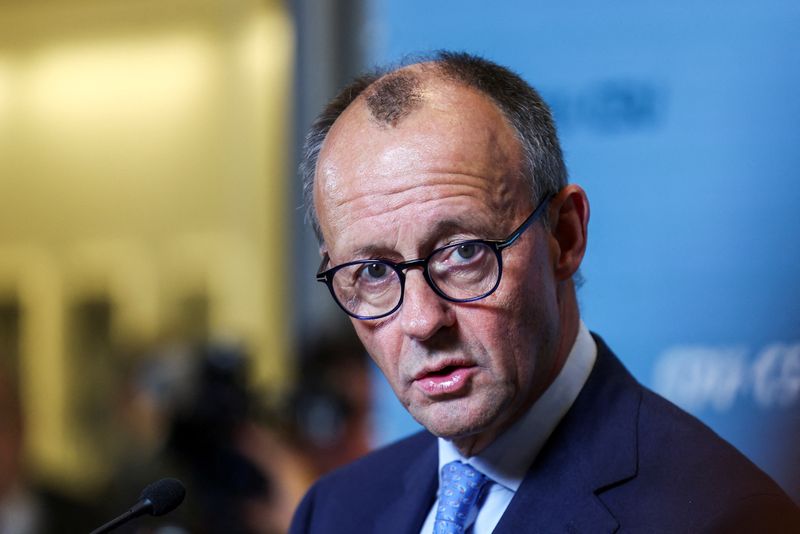BERLIN (Reuters) - Germany's conservative opposition leader and possible next chancellor, Friedrich Merz, on Wednesday rejected a reform of the debt brake before elections planned for Feb. 23.
The debt brake - which played a part in breaking the coalition, precipitating the calling of a snap election - limits the public deficit to 0.35% of gross domestic product and can only be changed with a two-thirds majority in the upper and lower houses of parliament.
"I can definitely rule that out," the Christian Democrats' (CDU) Merz told Deutschlandfunk radio station.
"Lifting the debt brake just before the end of this coalition has always been a clear answer from us: No, we won't do that," Merz added.
Merz was somewhat more open, albeit sceptical, about after the election: "We can discuss the debt brake, but not if it involves simply increasing spending, because then all the other problems are not solved," he said.

State spending would first have to be reformed before he would consider a change to the debt brake, said Merz, and even then, he was "very, very sceptical" as to whether this was the right way to create more debt.
Merz had showed openness to reforming the brake, which was introduced by his party under Angela Merkel, earlier this month after previously arguing the country should stick with it.